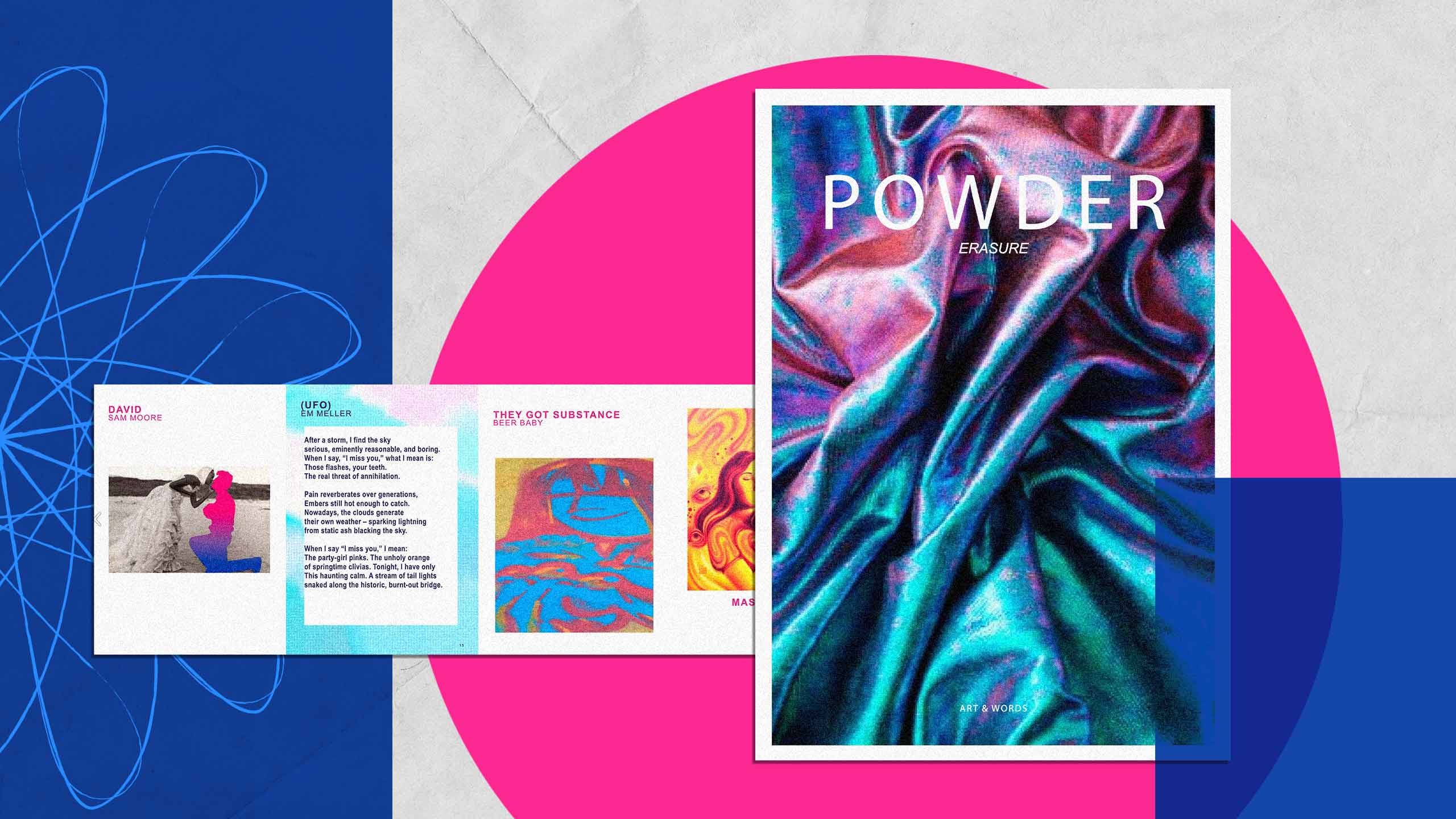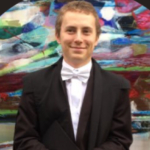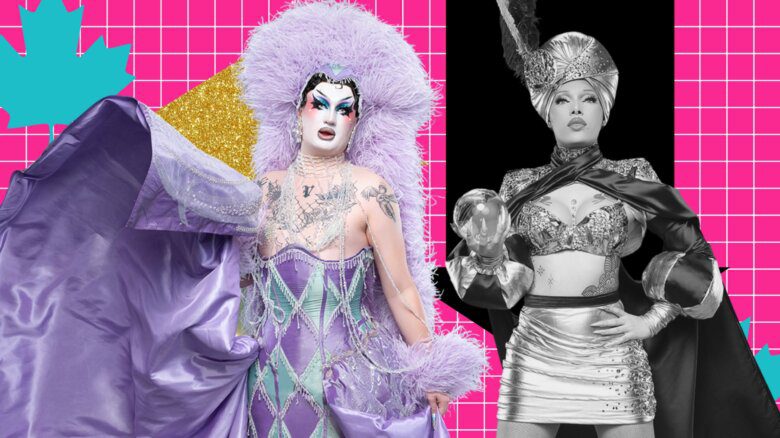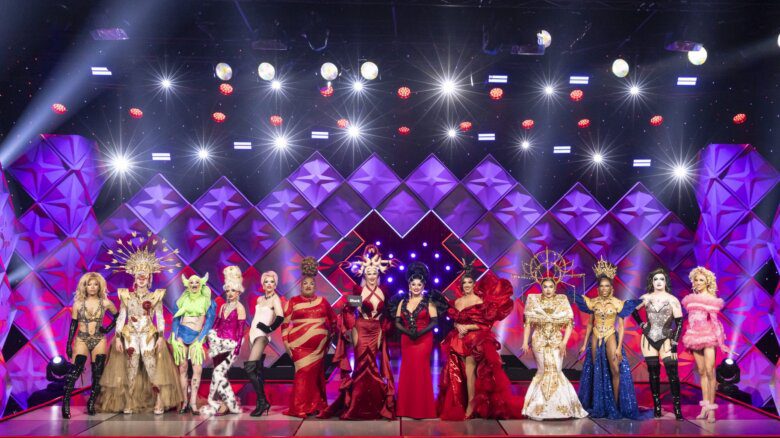Who
I’m a 26-year-old non-binary writer and editor. I’ve been in lockdown at my parents’ house in Bristol, U.K., on-and-off for almost a year now, but in regular times I would be living in London.
What
I launched Third Way Press, a small, independent press designed to give a platform to both emerging and established writers, with a focus on exploring issues relevant to the queer community.
Why
Just before our first lockdown happened, I went back to my parents’ house, where I’ve spent most of the last 12 months, as we wait for the vaccine programme to open the country back up again. Beyond just the geography, being here has taken me away from the events and communities that help me feel at home, especially when it comes to queerness. I miss going to open mic nights, queer readings and small art shows curated by friends of mine.
The first issue of Powder, the zine that I’m publishing under Third Way Press and co-edit with a friend of mine, was all but ready to be shipped out to bookstores when lockdown hit, and we had to hit pause on all the work that we’d done. Lockdown is what made us shift our plans: We went online, started using Instagram and put out a call for submissions for work themed around illness and isolation, a way to create a direct response to the lockdown that we’d found ourselves in.
“By asking people to share their stories, I was able to start making a version of the community that I’d had to leave behind for lockdown.”
Reading the submissions was a way to close the gap between what life was like before lockdown, and what life became in the midst of it. Being at my parents’ house is always a challenge because I’m not out to them. But as people trusted me with their work—sending poems about loneliness or short stories about finding stability through cooking with friends—those concerns faded away. By asking people to share their stories, I was able to start making a version of the community that I’d had to leave behind for lockdown. Even though submissions have slowed, I still email contributors; we share poems, publications, congratulations and reassurance. Lockdown might have taken me away from London, but it didn’t take me away from the kind of queer communities I found there, the ones that always feel like home.
Making connections
It wasn’t creating the zine or the press, that led to the strongest connections that came from it, but instead the decision to go online with it as a response to lockdown. Doing this is what put me in touch with other writers and editors who were looking to do similar things: Offer up community and solidarity for other queer people in a time when it was becoming increasingly necessary.
There are other editors who have become good friends. It’s the simple acts of friendship, from hyping up each other’s work to sharing stupid non-binary memes on Instagram, that have become incredibly meaningful, simple gestures that help fend off the loneliness that can come with lockdown. Every week, I’m invited to someone’s queer open mic night; there are workshops and readings popping up all over the place. It’s the decision to do something as simple as posting about a zine on Instagram that led to these initial connections. And the stronger those connections become, the greater their reach. These are connections that will last beyond lockdown; I’ll meet up with the people that live in London or go to these open mic nights, and they won’t just be a reminder of the lockdown that created them, but of the possibility and futures available when we make our communities.
Surprise!
Deciding to start a zine, and then integrating it into a small press, is a daunting task to say the least. It can feel pretty terrifying to be making this all up as you go along. Of course, with publishing, there’s always the hope that a connection is made between the work and an audience; whenever I see notifications on Instagram that people are following the press, I get really excited because it means that there’s more people who we will hopefully be able to connect with in the future.
How queer is it?
This is a very queer project, and from the beginning that’s always been one of the most important things about it. While we don’t take work exclusively from queer writers, the desire is to create a platform for queer voices that might feel pushed to one side elsewhere. I’ve been told that my work is “too niche,” which often feels like shorthand for being too experimental, too personal or too queer. These aren’t things to shy away from, but to embrace, and that’s what we’re offering people—from individual writers to a community of readers, a space to embrace qualities that might not always be welcome.
Strangest publication (so far)
In our first issue, there’s “In which ‘Bi’ both does and does not mean ‘two’” by Anna Ralls-Ulrich, a whirlwind through language, marriage, religion and everything in-between. The forthcoming issue on illness and isolation did one thing I never expected: We included Martin O’Brien’s The Prophetic of Sickness, a piece on sickness as a way towards liberation against repressive norms. It might sound like the last thing in the world you’d wanna read in the middle of a lockdown caused by a virus, but I promise it’s a pleasant surprise.
Have you found an imaginative way to create community in these physically-distanced times? Email us your story idea here.


 Why you can trust Xtra
Why you can trust Xtra


